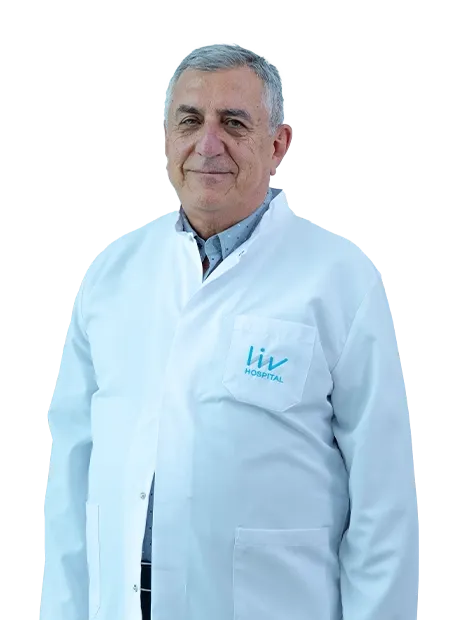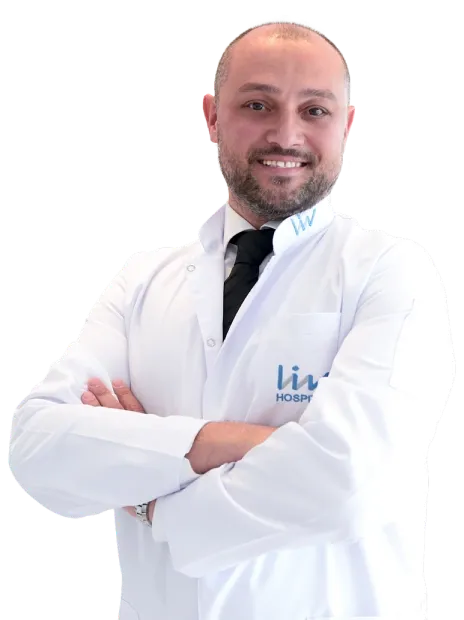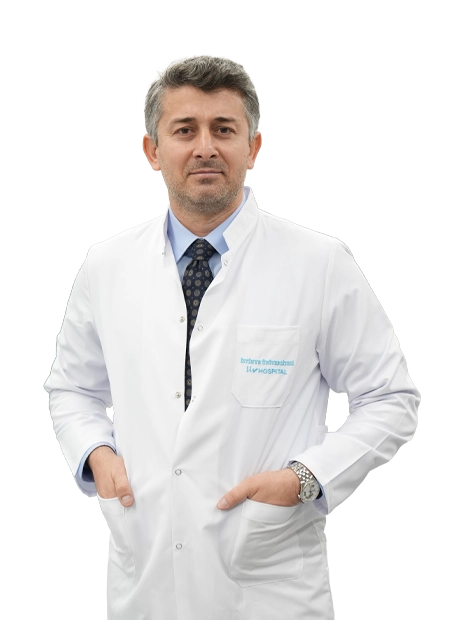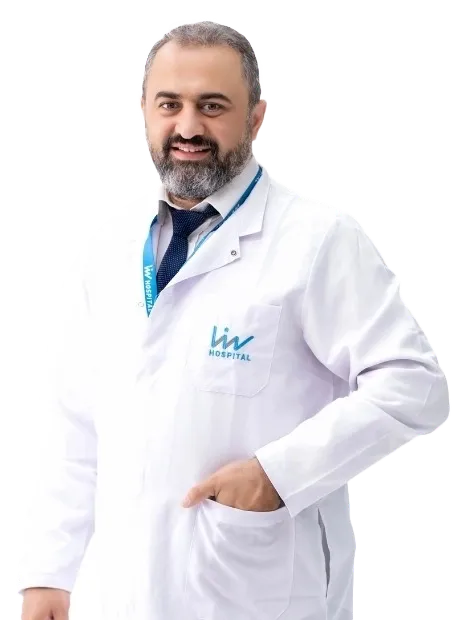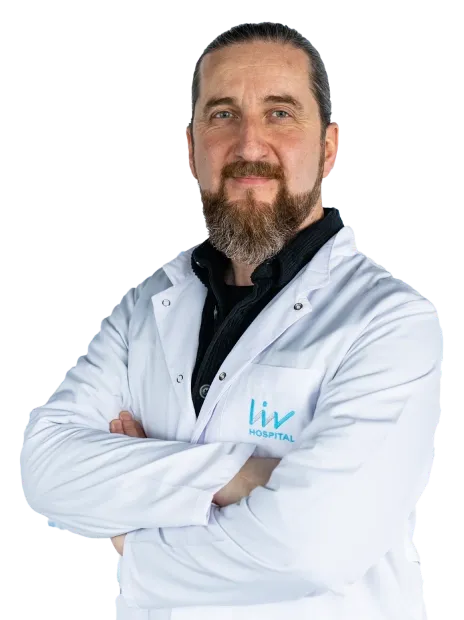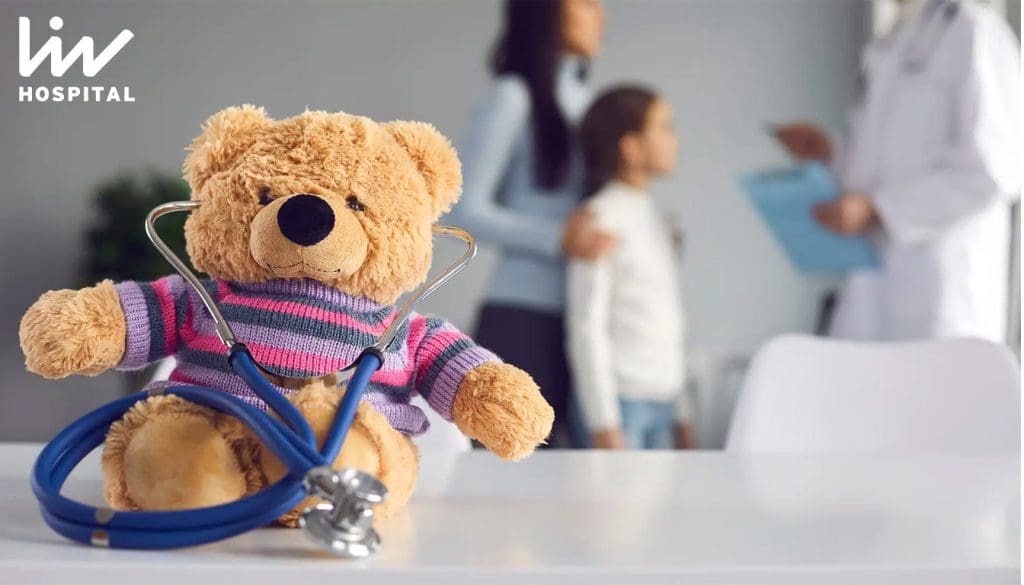
Millions of children worldwide face surgery every year due to various surgical diseases. Among them, appendicitis is the most common and urgent problem seen in pediatrics.
At Livhospital.com, we understand how critical timely treatment is for children with surgical diseases. Our mission is to provide high-quality pediatric healthcare and ensure safe recovery for young patients. We also offer complete medical support for international families seeking the best care.
Appendicitis is one of the most frequent surgical diseases in children, requiring fast medical attention. With expert pediatric surgeons and advanced facilities, we are committed to delivering the best outcomes. Our focus is always on the unique needs of children facing surgical diseases, ensuring compassionate care and successful treatment.
Key Takeaways
- Appendicitis is the most common pediatric surgical problem worldwide.
- Timely and quality care is key for kids needing surgery.
- Livhospital.com offers full support for international patients.
- We aim to provide world-class healthcare for children with surgical needs.
- Common childhood surgeries need special care and attention.
Overview of Pediatric Surgical Challenges
Every year, around 4 million surgeries are done on kids in the U.S. These surgeries fix birth defects and treat injuries or illnesses like appendicitis.
Dealing with kids’ bodies is different from dealing with adults’. Kids’ bodies grow and change a lot. So, they need special care and tools.
“The global challenge of accessing timely surgical care, even in poor countries, shows we need better services and teamwork in pediatric surgery.”
Getting surgery quickly is hard, but it’s even harder in poor countries. We need better places and training for kids’ surgery.

Doing surgeries on kids is a big deal. It’s not just about the surgery. We also need to take care of he kids before and after surgery. And we must help with their emotional and family needs.
We must keep improving care for kids. Every child should get the surgery they need, no matter where they live. We need better technology and a team effort to make this happen.
Appendicitis: The Leading Pediatric Surgical Problem
Pediatric appendicitis is a serious condition that needs quick diagnosis and treatment. It’s a common cause of belly pain in kids, mostly between 4 and 15 years old. Doctors must know how to handle it well.

Epidemiology and Prevalence Rates
Appendicitis is a big deal in kids, hitting its peak in pre-teens. It’s a leading cause of sudden belly pain that needs surgery. The rates vary worldwide, but it’s a big problem everywhere.
The epidemiology of appendicitis shows how important it is for kids’ doctors to know about it. It affects a lot of kids, with a lifetime risk of about 8.6% for boys and 6.7% for girls.
Clinical Presentation in Children vs. Adults
Kids with appendicitis often show different symptoms than adults. They might have belly pain, nausea, vomiting, and fever. It’s hard to tell because their symptoms are not always clear.
It’s important to remember that young kids can’t always point out where it hurts. Older kids and adults usually have more obvious symptoms, like pain in the right lower belly.
“The diagnosis of appendicitis in children requires a high index of suspicion, as the presentation can be atypical.” – Pediatric Surgical Expert
Diagnostic Approaches and Challenges
Figuring out if a kid has appendicitis takes a few steps. Doctors use a mix of checking the kid, blood tests, and imaging, like an ultrasound. Sometimes, a CT scan is needed to be sure.
- Clinical assessment
- Laboratory tests (e.g., WBC count)
- Imaging studies (ultrasound, CT scan)
Surgical Techniques and Approaches
How doctors operate on kids with appendicitis has changed. Now, they often use laparoscopic surgery. This method is better because it hurts less and kids get to go home sooner.
Laparoscopic appendectomy is better than the old way for many reasons. It causes less pain, fewer complications, and faster healing. But the best method depends on the doctor and the kid’s situation.
Pediatric Trauma Requiring Surgical Intervention
Pediatric trauma has a big impact on healthcare. Almost 40% of diagnoses in some hospitals are due to injuries. Children’s injuries often need quick and effective surgery.
Pediatric trauma includes many injuries, like broken bones and deep cuts. It also includes serious issues like bleeding inside the body or damaged organs. Prompt and proper surgery is key for these cases. It helps patients get better faster.

Handling pediatric trauma needs a team effort. This team includes pediatricians, surgeons, and more. They all work together to help children. Specialized care is essential for kids.
Children can get hurt in many ways, such as falls or car accidents. Each injury is different. Good care means fixing the injury and thinking about the child’s future health.
In summary, pediatric trauma is a big challenge in healthcare. Knowing about it helps us provide better care. We aim to give top-notch healthcare to kids, helping them recover from injuries.
Common Pediatric Surgical Diseases Beyond Appendicitis
Appendicitis is a big deal for kids, but other conditions need surgery, too. We’ll look at other serious diseases that kids face and need quick medical help.
Certain birth defects and cancers are big concerns for kids. They often need complex surgeries and a lot of care.
Congenital Anomalies Requiring Correction
Congenital anomalies happen during pregnancy. They can be structural or functional problems. Some need surgery to keep kids healthy.
Biliary atresia and congenital diaphragmatic hernia are examples. Biliary atresia blocks the bile ducts, harming the liver. Congenital diaphragmatic hernia lets organs move into the chest, hurting lung growth.
We use special tests to find these problems early. Quick surgery is key to avoiding serious issues and improving health.

Pediatric Oncological Surgeries
Pediatric oncological surgeries remove tumors in kids. Cancer is rare in children, but it needs a team effort for treatment.
Types like neuroblastoma, Wilms tumor, and rhabdomyosarcoma might need surgery. Modern surgery aims to be precise, helping kids survive better.
It’s vital to have a care plan that covers surgery and emotional support for kids and families.
Surgical Infections in Pediatric Populations
In pediatric surgery, infections like abscesses and osteomyelitis are big challenges. These infections make treating the main problem harder. They also affect the child’s recovery and health a lot.
Children can get different kinds of infections, from skin problems to serious conditions like necrotizing fasciitis. Effective management means quick diagnosis and the right antibiotics. Sometimes, surgery is needed to remove abscesses or infected tissue.
Dealing with infections in kids is tough. It includes finding the problem fast, dealing with possible complications, and the emotional toll on the child and family. Healthcare providers must take a full approach. They need to treat the infection well, but also care for the child’s emotional well-being.
Good care for kids with surgical infections means treating the infection and supporting the child and family. It’s important to make sure the child gets the right follow-up care. This helps prevent long-term problems.
Advancements in Managing Pediatric Surgical Diseases
Medical technology and surgical techniques have greatly improved. At Livhospital.com, we use the latest academic protocols and care pathways. This ensures top-notch care for our young patients.
The way we handle common childhood surgeries has gotten much better. New surgical methods, diagnostic tools, and post-op care have all improved. These changes have led to better results and shorter recovery times.
Minimally invasive surgery is a big step forward. It causes less harm and helps patients heal faster. Also, better imaging tools help us diagnose problems sooner and more accurately.
We’re always looking to improve, making sure our patients get the best care. Our commitment to new medical advancements shows in our updated treatment plans and care paths.
By using these advancements, we aim to make care better for kids. We want to meet their unique needs and improve their outcomes.
Conclusion: Future Directions in Pediatric Surgical Care
Looking at common pediatric surgical issues, we see a big challenge: getting kids to surgery on time. We’ve talked about the tough cases, from appendicitis to birth defects and injuries.
For the future, we need to keep improving how we care for kids. We should use new surgical methods, better ways to diagnose problems, and make sure all kids can get the care they need. Livhospital.com is working hard to help by supporting patients from around the world.
By focusing on these goals and working together, we can make care better for kids everywhere. This will help improve how well kids do after surgery.
FAQ
What are the most common pediatric surgical problems?
Common problems include appendicitis, congenital anomalies, and trauma needing surgery. Also, oncological surgeries are common. Timely and quality care is key pto rpreventingcomplications and ensuring the best outcomes.
How common is appendicitis in children?
Appendicitis is a common emergency in kids. It’s a big reason for abdominal pain and surgery in children. The exact rate can vary, but it’s a big issue.
What are the challenges in diagnosing appendicitis in children?
Diagnosing appendicitis in kids is tough. They often show non-specific symptoms. So, doctors use a mix of clinical checks, imaging, and lab tests to confirm it.
What are the surgical techniques used to treat appendicitis?
To treat appendicitis, doctors use open and laparoscopic appendectomies. Laparoscopic surgery is preferred for its benefits. It leads to less pain and quicker recovery.
How does pediatric trauma requiring surgical intervention impact children?
Pediatric trauma can affect kids physically and emotionally. Quick and right surgical care is key. It helps prevent long-term issues.
What are congenital anomalies that require surgical correction?
Conditions like heart defects, cleft lip and palate, and gastrointestinal issues need surgery. These vary in complexity. Specialized care is needed to fix them.
How are surgical infections managed in pediatric populations?
Managing infections in kids involves antibiotics, drainage, and supportive care. The method depends on the infection’s type and severity.
What advancements have been made in managing pediatric surgical diseases?
Advances include better surgical techniques, diagnostic tools, and post-op care. These have led to better results and less harm for kids.
How does Livhospital.com address the challenges in pediatric surgical care?
Livhospital.com aims to provide top-notch healthcare for international patients. We use the latest in pediatric surgery to offer quality treatment and support, tackling care challenges head-on.
References
- Ajao, A. E. (2021). Spectrum of paediatric surgical cases in a private mission hospital. Nigerian Journal of Clinical Practice, 24(12), 1755-1762. https://pmc.ncbi.nlm.nih.gov/articles/PMC8759418/






